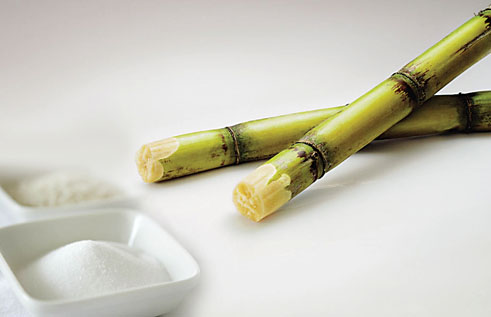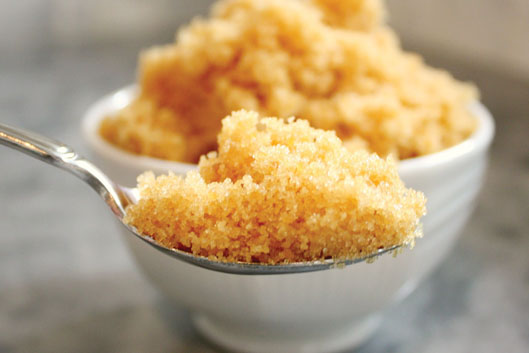Sugar and the Botswana Diet
Source : FREELANCE
Author : David J. (Kabelo) LaFratta
Location : GUMARE
Event : Health Tip
There is a huge link between the food we eat and our health. Dr. Alan Bernstein, President of CIHR (Canadian Institute of Health Research) says, “Food is one of the primary determinants of human health. Safe and nutritious food can foster good health and can help us avoid disease; unsafe food and unhealthy choices can lead to obesity and illness.” The foods we decide to eat today affect our health not just today but also many years later in our lives. It is very important to understand that disease develops gradually over time largely as a result of poor food choices.
Now let`s take a look at one of the most popular foods in Botswana…sugar!
Sugar occurs naturally in most fruit and vegetables and is most abundant in sugar cane and sugar beets. This kind of sugar contains nutrients, vitamins, minerals and enzymes which are very beneficial and necessary for a healthy body. As we all know many in this country enjoy chewing on sugar cane stalks to extract the juice which is loaded with nutrients. However, problems arise when the sugar cane plant is “processed” to produce what we call refined sugar, white sugar or table sugar.
The refinement of sugar cane is a process that involves the use of many chemicals. The unfortunate problem is that the finished product contains none of the nutrients, vitamins, or minerals of the original sugar cane plant and to make matters worse, the resulting product is very harmful to the human body.
Refined sugar tends to play a very large role in our usual Botswana diet. We add multiple spoons of sugar to our tea or coffee and we add refined sugar to our soft porridge. In addition, we do not always see the refined sugar that is hidden in the processed foods we consume. This includes the sugar in all soft drinks, tomato sauce, snacks or sweet treats, and in baked goods. In fact, the majority of all packaged foods contain added sweeteners. Refined sugar is everywhere!
Now we have to ask…how serious is this consumption of refined sugar to the human body?
Below is a small list of few of the 146 reasons on ‘how sugar is ruining your health` from the book, Lick the Sugar Habit, written by Nancy Appleton, PhD, clinical nutritionist.
· Sugar contributes to diabetes
· Sugar can cause cardiovascular (heart) disease
· Sugar can decrease growth hormone (the key to staying youthful and lean)
· Sugar feeds cancer
· Sugar suppresses the immune system
· Sugar can weaken eyesight
· Sugar greatly assists the uncontrolled growth of Candida Albicans (yeast infections)
· Sugar eats away the enamel of your teeth causing tooth decay and cavities and if left untreated the loss of teeth
Dr. William Coda Martin, in 1957, tried to answer the question: When is a food a food and when is it a poison? The definition of “poison” he came up with is: “Medically: Any substance applied to the body, ingested or developed within the body, which causes or may cause disease.” It is important to note that Dr. Martin classified refined sugar as a poison.
As for the impact of sugar consumption on diabetes levels in this country, in 2010, 4.1 per cent of Botswana`s adult population lived with diabetes. In 2011, the national prevalence doubled to 8.2 per cent of the adult population. Sadly, Botswana has the third highest diabetes prevalence in Africa after Mauritius and Seychelles.
Our health can be greatly impacted for the better by reducing the amount of refined sugar in our diets. Here are some suggestions to move in the direction of a healthier diet.
1. Avoid foods that are high in refined sugar such as all soft drinks (including diet soft drinks) and packaged snacks.
2. Drink lots of water. Water will help reduce sugar cravings.
3. Use honey as a sweetener for tea/coffee or on soft porridge.
4. Increase your consumption of vegetables. Vegetables contain fiber (see # 5 below). Also, try to eat half of them cooked and half uncooked as the cooking process will reduce the amount of vitamins and minerals that will be available. Consider eating more sweet vegetables like beets, carrots, and sweet potatoes. Remember, as mentioned earlier, unlike refined sugar, the sugar naturally found in vegetables and fruits is quite nutritious for the body.
5. Eat more fruits. The natural sugars that are in fruits are healthy for the body and eating fruit will add fiber to your diet. Fiber will give you the feeling of being full. And fiber helps flush out toxins from the body. Because fiber is not digested well it will be excreted and you will not gain weight. After a week or so of replacing the sweet items in your diet with sweet fruits instead, many people will find that the sweet fruits now satisfy their sugar cravings, and indeed, the old sugary snacks start to taste too sweet.
6. Eat plain yoghurt (not the sugary varieties) and add your own fruit to it
As an American I have to admit that we eat entirely too much sugar too, so this is a problem I have encountered in my home country as well.
Note about brown sugar: Many people think brown sugar is healthier than white sugar. Unfortunately, brown sugar is merely white sugar that contains a very small amount of molasses that gives it its brown colour and richer taste. However, nutritionally speaking, it is important to note that both types of sugar can be detrimental to the body. ENDS
Teaser:
There is a huge link between the food we eat and our health. Dr. Alan Bernstein, President of CIHR (Canadian Institute of Health Research) says, “Food is one of the primary determinants of human health. Safe and nutritious food can foster good health and can help us avoid disease; unsafe food and unhealthy choices can lead to obesity and illness.” ..















